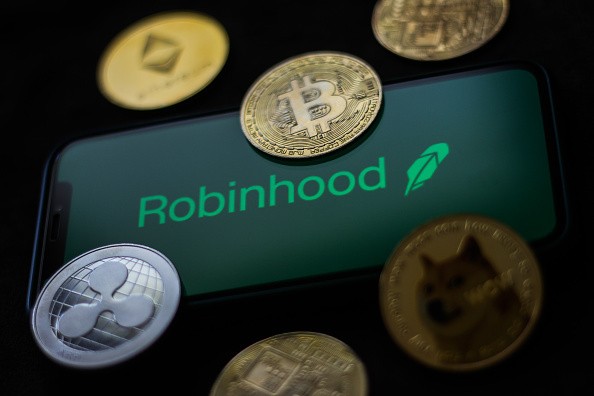
Announced on Friday, Apr. 8, Robinhood is allowing the use of its internal cryptocurrency wallet for waitlisted users. The company has been running a soft test launch since September of last year, now expanding the service for "all eligible customers" that have been on its waitlist, which amounts to nearly two million potential crypto enthusiasts.
The digital wallet will give active Robinhood consumers "full access to their crypto," a form of a commodity that the platform has allowed the purchase of, but not the spending portion behind it. Digital currencies applicable for Robinhood's cryptocurrency wallet are only thus far Ethereum and Bitcoin, which can be bought and traded now on a whim.
Sent ✅ Received ✅ https://t.co/52vq3IMEoW
— Robinhood (@RobinhoodApp) April 7, 2022
Only those users in select US states, specifically Nevada, Hawaii, and New York, cannot utilize the new tool, as Robinhood specifies falls under "local regulations." The wallet thus gives Robinhood traders a new throughline into digital asset consumption and collection, as it coins participation "in the crypto ecosystem - by tipping on social media, paying for NFTs and more."
Areas of interest for crypto favorites will be addressed validation procedures, increased security measures via the likes of two-factor authentication, and QR code reading support, which will allow digital wallet users to spend cryptocurrencies on a dime. Still, while the added feature sets are certainly a welcome concept on Robinhood, there's room for complaint in regards to its custodial wallet designation.
Related Article: Robinhood Data Breach Compromises 7M Users, Personal Data Leaks After Vicious Attack Nov. 3
Under the custodial definition, Robinhood's digital asset wallet is at the company's discretion, meaning they literally can unlock (and subsequently lock) wallets at any given moment. It's a touchy subject for enthusiasts, who see the concept as lacking and giving that less responsible peace of mind if ever they lose their Robinhood login capabilities.
There's also some fine-print reading necessary before diving headlong into Robinhood's newfound crypto ecosystem, as the company highlights key mishaps that users need to be made aware of. For starters, while NFTs certainly can be bought and stored on Robinhood's crypto wallet, not every single one of them will be easily transferable. The company's FAQ page relays some weighty information that NFTs could be lost in transit when moving the asset to a Robinhood address.
The company also clarifies that average stocks won't be made purchasable through cryptocurrencies, which may be a deal-breaker for some. Robinhood is looking to add Bitcoin Lightning Network to its wallet features soon enough, with a rollout set for "the near future." BLN support on Robinhood's crypto wallet will thus give Bitcoin adopters a less expensive and streamlined transferring process of their cryptocurrencies.
Despite being major players primarily in stock trading, as witnessed in the rather wild events surrounding GameStop's short play last year, crypto has no sooner skyrocketed into the forefront of investing on the Robinhood app. As is always the case, the parameters are rather volatile, but the potential is there, as even Robinhood's Chief Product Officer, Aparna Chennapragada, explains amid Miami's 2022 Bitcoin Conference:
"Bitcoin is actually the top most recurring buy for our customers, more than even many of the stocks you think about."
ⓒ 2025 TECHTIMES.com All rights reserved. Do not reproduce without permission.




